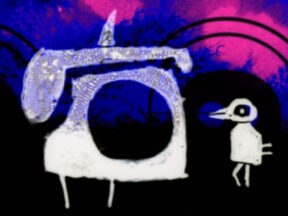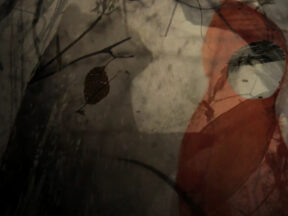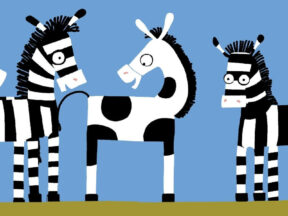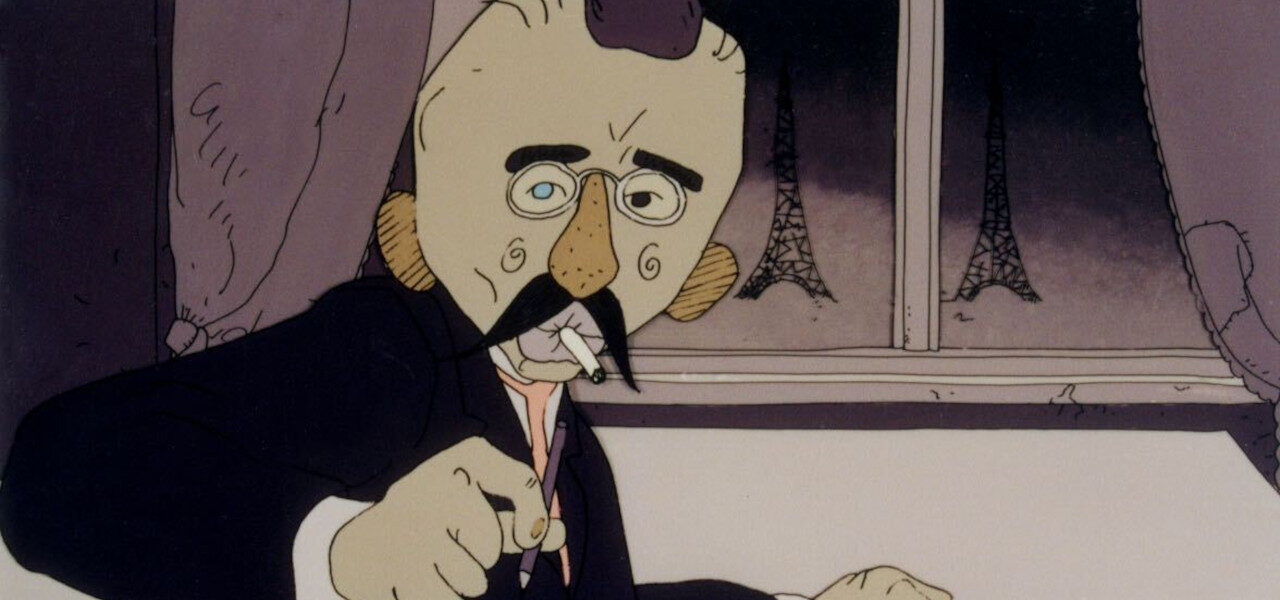
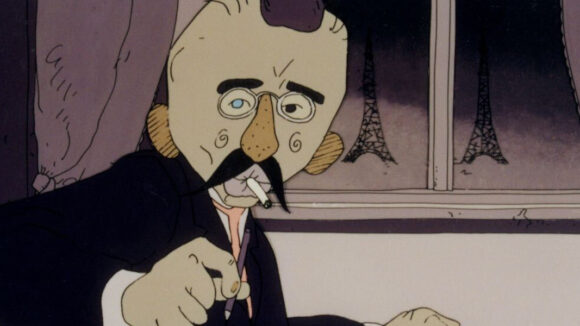
Know Your Indie Filmmaker: Priit Pärn (Exclusive Video)
In this ongoing series, we profile the most interesting independent animation filmmakers working today — the artists who, through short films and other projects, change our ideas of what the medium can do.
This week’s subject is Estonian master Priit Pärn, the animation spiritual offspring of Jean-Luc Godard, George Grosz, Pop Art, and Monty Python.
In a sentence: Pärn’s work combines “crude” drawings, dark humor, satire, and a pinch of absurdist comedy to challenge the social, cultural, and political structures we take for granted, ranging from communism to cinema, to the internet, to personal relationships.
Where to start: Pärn has made a few masterworks, but this anti-cinema ode to the centenary of the artform is my personal favorite. Loaded with cinema references and an assortment of cultural stereotypes and inside jokes, Pärn uses the journey of Jean-Paul (based on Louis Lumière) to show how cinema has impacted our perceptions of history, nationality, and identity. Hilarious. Maddening. Brilliant.
(Note: Eesti Joonisfilm (the studio with which Pärn’s films are made) has agreed to let Cartoon Brew share 1895 (1995, co-directed with Janno Poldma) exclusively for a limited period.)
Where to go after the above link expires: Breakfast on the Grass (1988) is widely considered to be a true masterpiece of animation. In examining a few moments in the daily lives of four Estonians, Pärn critiques life in the Soviet Union by giving viewers a rare glimpse of the absurdities of Communist society and what people endure on a daily basis just to survive.
What to watch next: Let’s go with Hotell E (1992), a critique of the hypocrisy of both the East and the West based on Pärn’s frequent travels to both sides during the cold war era. The “East,” depicted with a palette of grey, black, and brown, is filled with faceless drones who dare not think for themselves. The “West,” on the other hand, is represented using a candy-coated design with an almost paint-by-numbers approach that reveals a hollow world with rather mindless Gatsby-like characters who have nothing interesting to say. In short, Pärn is critical of the worst aspects of each side and, in a sense, we see that they’re not all that different in the end.
Other key works: Switch off the Lights (1988), Kolmnurk (1982), Aeg maha (1985). There are many other standouts which aren’t currently available online, including The Night of the Carrots (1998), Pilots on the Way Home (2014), and Life without Gabriella Ferrita (2008), the latter two co-directed with his wife and creative partner, Olga Pärn.
Influences:“I don’t have big influences from concrete people. Or let’s say I have influences from so many people that to mention one or three is just not right. Concerning animation, I like the works of many filmmakers, but this doesn’t mean they have influenced me. I started with animation when I was already 30 and I was old enough to know what I wanted to do.”
Says: “Humor and wit are the salt and pepper of life. Political correctness has done a great deal to make the world humor-free. You could even say that humor is humor-free.”
Currently working on: A new short film titled Luna Rossa (co-directed with Olga Pärn). “It is very different in terms of animation technique: we use motion capture, actors of the physical theater, 3d puppets, and the final result is 2d drawing animation film. For us, it is a totally new way of production as well.”
Pictured at top: 1895

.png)
